Montenegro at a Loss to Deal with Impact of Lucrative Landfill
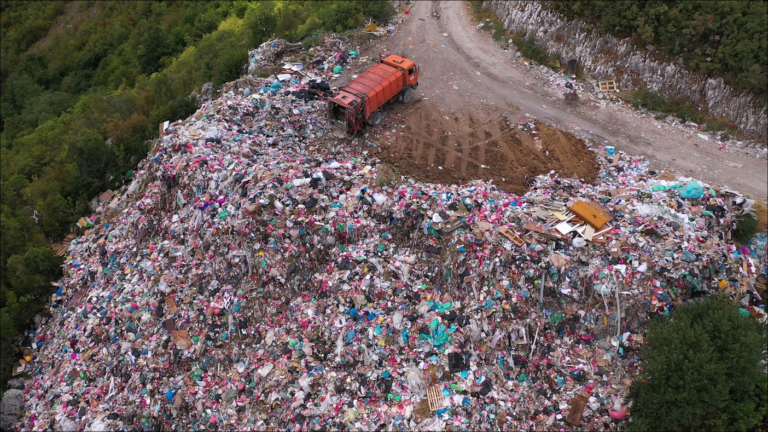
A ‘temporary’ landfill in the Montenegrin city of Niksic has been a money-spinner for the owner of the land and the local municipality, but at what cost to the environment and respect for the rules?
When public authorities in the Montenegrin city of Niksic rented two hectares of land on Budos Hill in 2003 as a garbage dump, it was supposed to be a temporary solution. Almost two decades later, 80-year-old Milka Simunovic says she fears the air from the landfill fires more than COVID-19.
“When a southerly wind blows, we can’t open the doors and windows,” said Simunovic. “I don’t know who can give the fruit here to their children.”
Every day for almost two decades, authorities in Montenegro’s second biggest city dumped 50 tonnes of garbage at the Mislov Do landfill, a few kilometres from the city centre. But it’s not just local waste that ended up there.
According to the findings of an investigation by BIRN and the Centre for Investigative Journalist Montenegro, CIN-CG, waste from other municipalities was disposed of at Mislov Do for years, in violation of the lease agreement, while municipal waste has been mixed with food, animal and chemical waste.
And it’s the people of Niksic who are paying the price, not just in the quality of air. Data obtained by BIRN/CIN-CG from the municipality shows that between 2003 and April 2021 – when the last contract expired – more than 420,000 euros in public money was paid to lease the plot, which, if sold, would not fetch more than 10,000 euros on the current market.
During that period, every month, the municipality paid rent of 2,400 euros to the owner of the land, Miras Djurdjevac, a former local assembly councillor and director of the company ‘Mislov Do’, which the municipality hired to maintain the landfill.
Mislov Do was founded by Djurdjevac’s son, Vukasin, who is engaged in the municipal Public Utility Company in charge of waste disposal and who was convicted alongside four others in 2014 over a brutal attack on journalist Lidija Nikcevic in January of that year.
Critics of the municipality’s waste management practices say the deal raises suspicion.
“It is a matter of private property for which the people of Niksic pay and pay for something that is illegal,” said Aleksandar Perovic, director of the Niksic-based environmental NGO Ozon.
“The law prohibits the mixing of hazardous waste with municipal waste and that is exactly why we say that this location is an environmental time bomb.”
Harm to air, water, soil
Since the contract expired in April last year, waste is no longer dumped at Mislov Do. A new dump will be opened nearby while a recycling centre is built.
According to the original lease agreement signed by Djurdjevac and then Niksic mayor Vera Miljanic in 2003, only communal waste from residential and business premises in Niksic and surrounding areas was to be disposed of at Mislov Do.
Yet municipality records show that waste was brought to the site from the coastal towns of Kotor in 2011 and 2012, Pluzine in 2013 and 2016 and Budva between May 2010 and June 2011, reaping tens of thousands of euros for Niksic municipality.
The Public Utility Company, Komunalno, also told BIRN/CIN-CG that waste from most private companies in Niksic is also sent to the site, meaning municipal waste is being mixed with food, animal and chemical waste. Fires burn regularly at the site, sending smoke into the air over Budos Hill.
Public calls for the site to be shut down have gone unheeded.
“How can we know what we are breathing?” asked Simunovic. “Everyone can feel the stench.” Her neighbour, Ranka Simunovic [no relation], said it was not worth mowing the meadow closest to the landfill. “I can’t bring hay from there to give to cows, because I can’t give that milk to my children later.”
Just in 2020, the landfill burned for 45 days consecutively, as long as in 2021.
“We have been warning for ten years that this will happen,” said Perovic, from Ozon. “It is not just about methane gases, but different types of gases that are by-products of plastic combustion, different types of hazardous waste.”
No tests have been conducted on the quality of air, water or soil at the landfill or its surroundings. The Institute of Public Health told BIRN/CIN-CG that it had no data on the impact on public health in Niksic.
Experts, however, say the potential harm is considerable.
Apart from fires that pollute the air, there is concern over uncontrolled runoff of water along the Zeta canal or through the karst base and into springs.
“We are talking about a formation that is like a sponge, full of canals, passages,” said Dusan Jelic, a doctor of biology at the Croatian Institute for Biological Diversity. “And every landfill and every disposal of materials inevitably ends up underground; you cannot prevent leaching.”
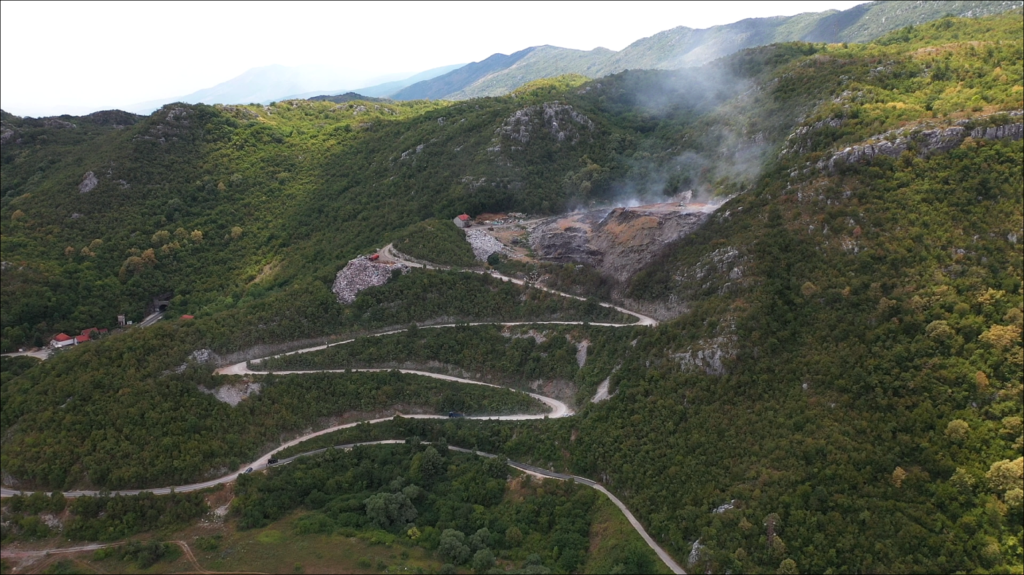
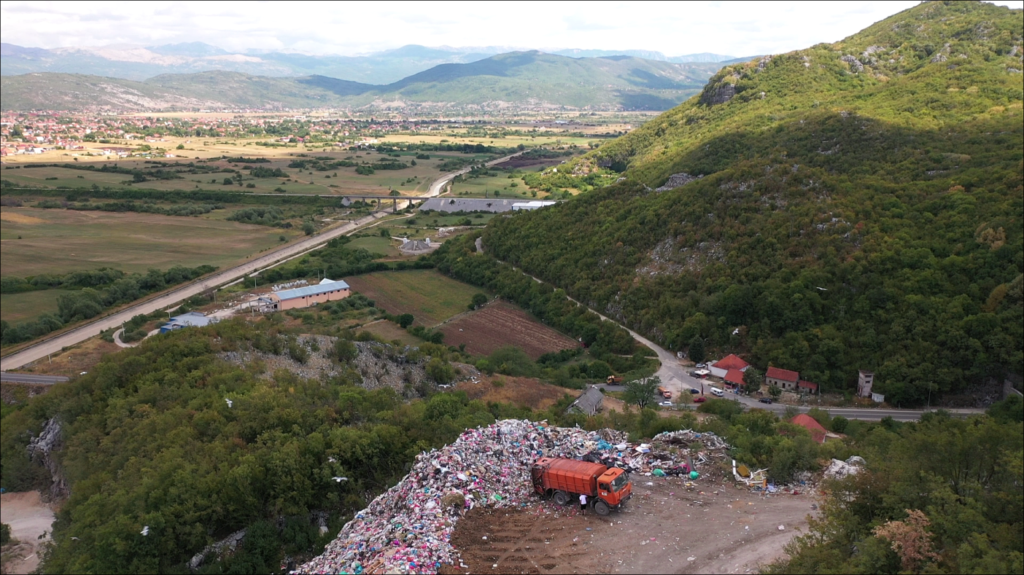
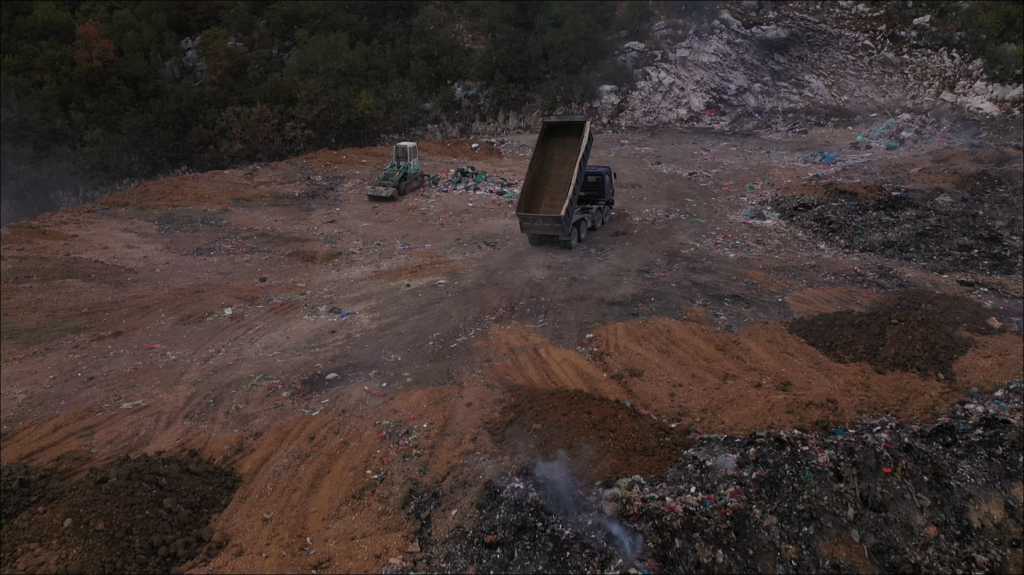
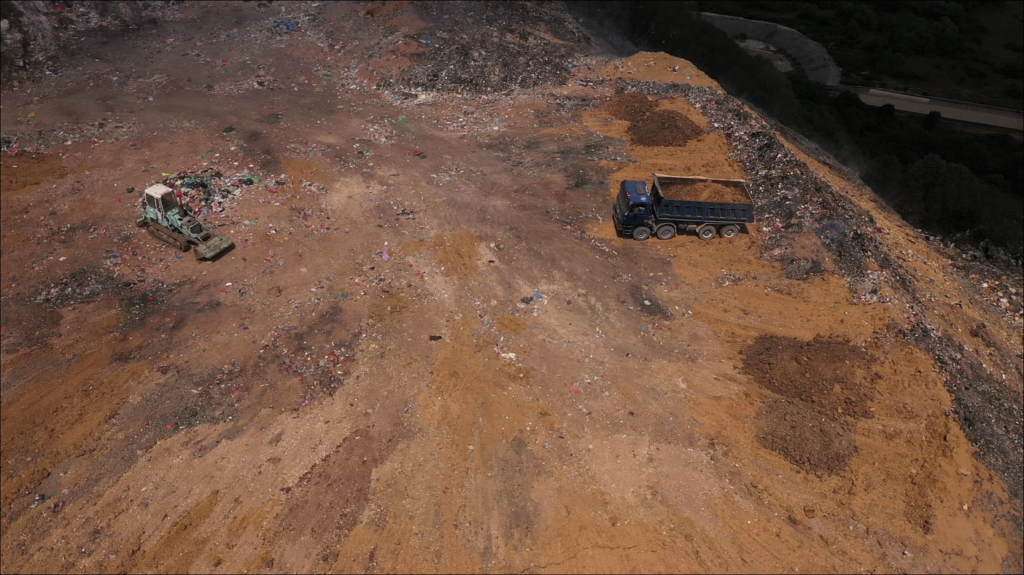
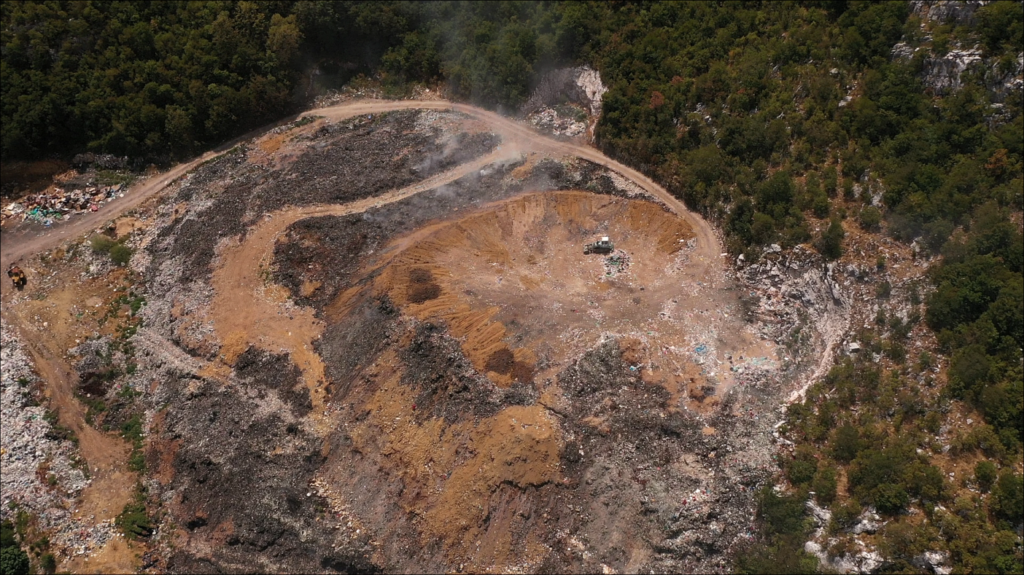
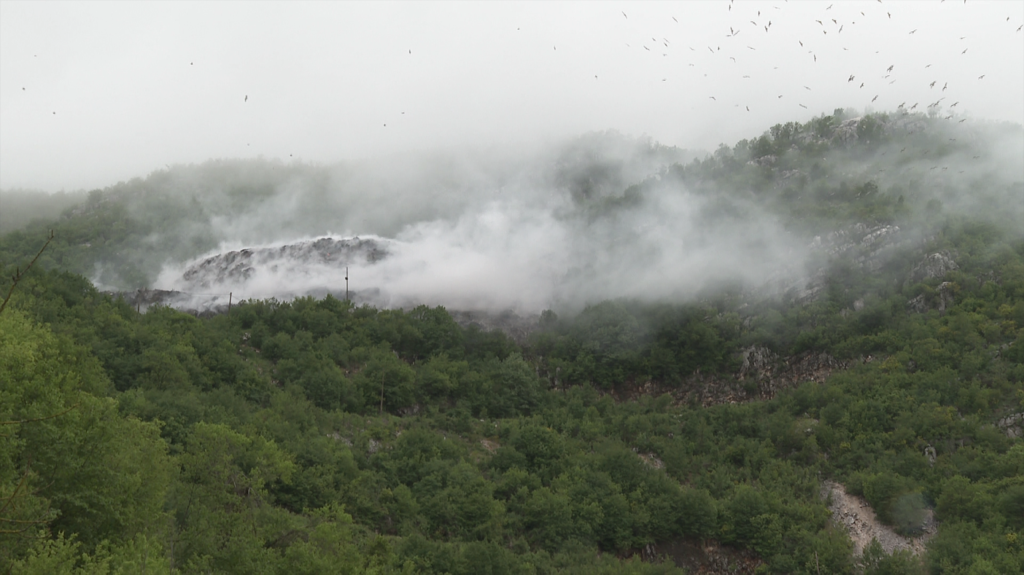
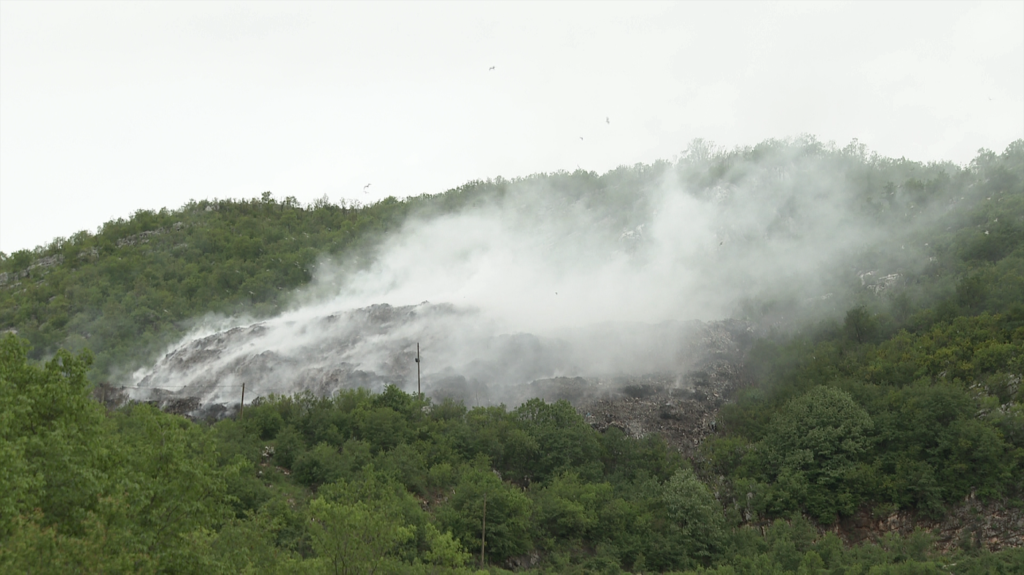
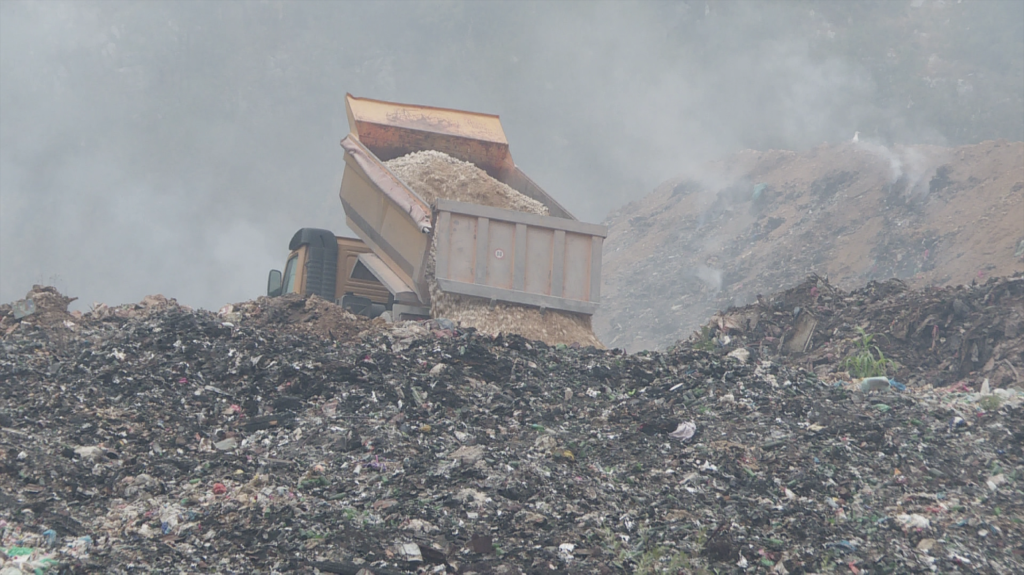
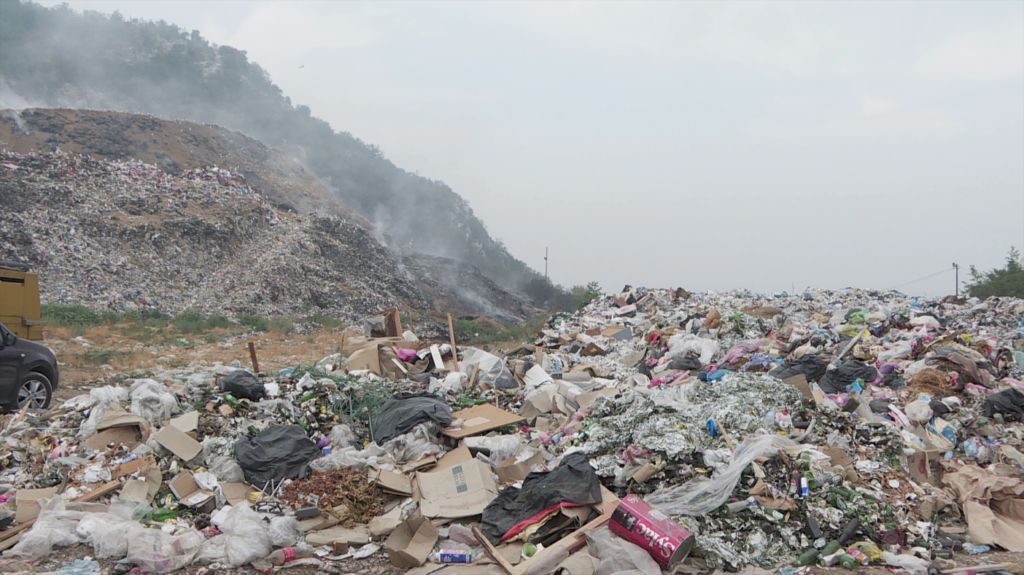
No one held to account
Under the Law on Waste Management, the landfill should have been closed down or brought into line with environmental standards in order to secure the necessary permits by 2012, the deadline for regulating temporary landfills.
Judicial authorities have ruled repeatedly that the landfill does not come under the jurisdiction of environmental inspectors, who work at the state level, but under municipal inspectors, who as yet have not sought to deal with it.
“As the Municipality of Niksic did not establish temporary waste storage in accordance with Article 78 of the Law on Waste Management, the Environmental Inspection did not have the authority to control and monitor the storage and temporary storage of municipal waste,” the state Environmental Inspection told BIRN/CIN-CG.
“The day we came to power we encountered Mislov Do as literally a burning issue,” said Niksic mayor Marko Kovacevic, who took office in May 2021.
Authorities are currently exploring the possibility of a regional recycling centre to cater to several municipalities. A feasibility study has been conducted and a location selected. The environmental damage done at the Mislov Do landfill would be repaired.
“It’s not just a problem to stop the work of the landfill; it needs to be rehabilitated, covered in some way, removed,” said Danilo Mrdak, state secretary at the Ministry of Ecology.
“A project should be announced for a conceptual solution for how to technologically repair that wound in space, in the environment, because it will continue to burn again, to emit what it is not allowed to emit and we must figure out a way to repair that area and solve what is, for Niksic, an extremely big black mark.”
Djurdjevac said he expects the municipality to honour the lease agreement and rehabilitate the site.
“My basic motive, when I offered it to the municipality, was to have a livelihood, to raise a family,” he told BIRN/CIN-CG.
Since then, the landfill has had a bad press, but few recall how much it meant to the city, Djurdjevac said.
“This landfill, let me tell you, is condemned at the moment as a villain, as an evil”, he said. “No one wants to remember that this landfill was the salvation of this city for almost 20 years. I didn't force anyone to sign or not to sign.”
Environmental inspectors powerless
Montenegro’s Environmental Inspectorate has initiated proceedings against Niksic utility company over its use of the Mislov Do landfill, without success.
“The regional authorities have taken the position that the motions were submitted by an inspection that is not competent to do so because it concerns municipal waste that is under the jurisdiction of the municipal inspection,” said the Inspectorate.
Under amendments made to the Law on Waste Management in 2012, the job of monitoring the temporary storage of municipal waste was moved to local inspection bodies.
The Ministry of Ecology also cites legal regulations according to which, since 2012, local self-governments must regulate their landfills.
According to the State Waste Management Plan of 2015, Niksic should have become a regional centre for the sorting and partial recycling of waste from the municipalities of Niksic, Savnik and Pluzine, but, like others, the plan never executed.
Irena RAŠOVIĆ


